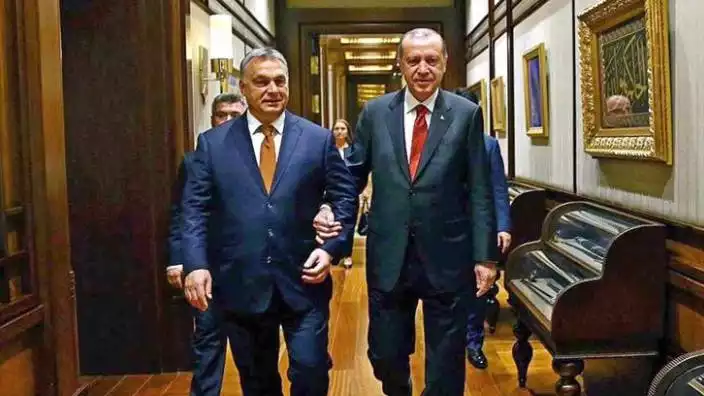Levent Kenez/Stockholm
As expected, Turkey’s ruling party and its partners submitted a constitutional amendment to parliament to provide constitutional guarantees for the right to wear a headscarf and for protection of the family. The government of President Recep Tayyip Erdoğan plans to hold a referendum on the constitutional articles it wants to change on the same day as the presidential and parliamentary elections in 2023. This political maneuver is reminiscent of one carried out by Prime Minister Viktor Orbán of Hungary, where the general election in April 2022 coincided with a controversial referendum on LGBT rights.
In October Kemal Kılıçdaroğlu, leader of the main opposition Republican People’s Party (CHP), stated that his own party had made mistakes in the past regarding the headscarf issue and that it was time to resolve the issue forever ahead of upcoming elections. The CHP then proposed a liberal amendment to the law governing women’s right to wear a headscarf, while Erdoğan suggested a constitutional amendment.
The proposal sponsored by the ruling Justice and Development Party (AKP) and the far-right Nationalist Movement Party (MHP) states that women with their heads covered and uncovered are now living together in peace and solidarity; however, women who covered their heads in the past due to their religious beliefs were deprived of many basic rights and freedoms, such as the right to education and training, to work, to enter public service, to vote, to be elected and to engage in political activity in the past by means of extra-legal regulations and de facto practices despite the constitution and the law.
Although the proposal emphasizes that there is no longer a headscarf ban or any deprivation of rights resulting from it thanks to the AKP, the proposal suggests that constitutional guarantees for women who wear a headscarf due to their religious beliefs should be introduced in order to prevent the unlawful acts of the past from happening again in the future.
The constitutional amendment on the headscarf and protection of the family:
In the proposal aimed at guaranteeing the freedom to wear a headscarf, interestingly, an amendment is also included for the protection of the family. With an amendment to Article 41 of the constitution, marriage will be defined as a union between a man and a woman.
“In this way, additional constitutional assurance is provided for the protection of the family against all kinds of dangers, threats, epidemics, social corruption and deviance …” the proposal says.
Political observers see the proposed amendment for the protection of the family as a very populist and political step, even though there is no strong public demand for same-sex marriage to be legalized and no opposition party has ever made any commitment to that.
However, Turkey’s Interior Minister Süleyman Soylu claimed in a speech on November 13 that the opposition would normalize homosexuality in society and said, “Forgive me for saying this, but men will get married to men, and women will marry women. It is a policy that befits Kılıçdaroğlu. Shame on him. The opposition is promoting a policy that will alter almost all of our values in the hope that it will appeal to the West.”
The constitutional amendment must receive at least 360 votes in parliament in order to not be completely rejected. The AKP and its partners already have a total of 334 deputies in the legislature. However, the government needs the support of around 40 right-wing deputies in the opposition. If the amendment is passed with between 360 and 400 votes, the proposal is voted on in a referendum. If it gets more than 400 votes, the amendment passes without going to referendum. However, according to the constitution, the president has the right to submit the proposal to a referendum, even if it receives more than 400 votes.
If the amendment receives less than 360 votes, the government has already announced that it will accuse the opposition of not being sincere about the headscarf issue. President Erdoğan, at a meeting with youngsters in Samsun on Sunday, stated that he intends to put the constitutional proposal to a referendum. Thus, it is intended that the referendum on the constitutional amendment, which will be accepted by a majority of the society, will create a climate favorable to the ruling party during the general election.
In Hungary the Orbán government decided that an anti-LGBT law passed in parliament would be voted on by the public on the same day as the country’s general election, on April 3. A four-question referendum ballot on family, child protection and LGBT issues was put to the voters. The referendum was deemed invalid since less than 50 percent of the voters answered the questions,
The Orbán government previously changed the definition of family with a constitutional amendment, banning same-sex couples from adopting children.
The constitutional amendment says: “Hungary protects the institution of marriage, established on the basis of a voluntary decision between a man and a woman, and the family, which is the basis of the survival of the nation. The basis of the family relationship is marriage and the parent-child relationship. The mother is a woman and the father is a man.”












